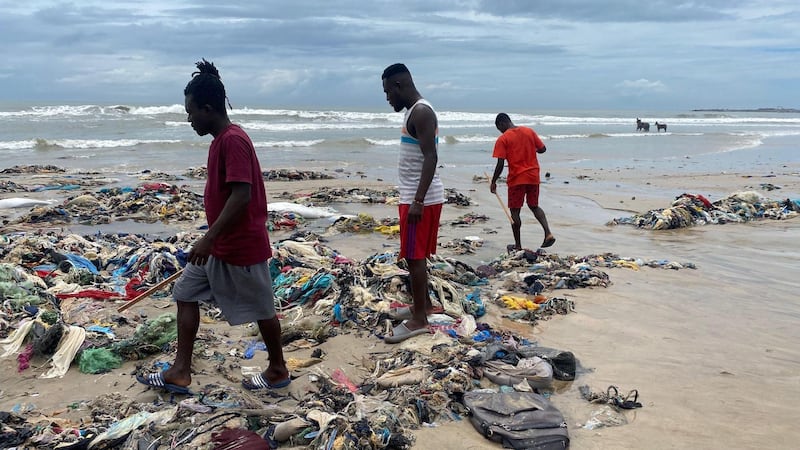
Agenda-setting intelligence, analysis and advice for the global fashion community.

Agenda-setting intelligence, analysis and advice for the global fashion community.

As the world’s hottest year on record draws to a close, fashion still isn’t sweating it. It should be.
Rising temperatures and associated weather extremes pose an increasingly present — and costly — business threat, even as big brands continue to lag on their climate commitments. New regulations aimed at curbing fashion’s environmental impact found many companies unprepared this year. And more is coming.
Part of the problem is that tackling the industry’s sustainability shortfalls requires facing a tangled web of interconnected and systemic challenges that have been made even harder by this year’s gloomy global economic backdrop and geopolitical upheaval.
Fashion’s growth has been powered by cheap energy in the form of coal, cheap materials in the form of plastic synthetics like polyester and cheap labour supplied by a precarious workforce increasingly threatened by a broader global shift towards authoritarianism.
ADVERTISEMENT
Changes are underway, from consumer movements that question how much wealthy individuals should shop to new tech platforms that promise to help brands measure their environmental footprint and meet incoming sustainability regulations. But heading into 2024, the industry will need to start to grapple more seriously with its climate risk.
Is Fashion Sleepwalking Into the Climate Crisis?: The extreme and deadly weather experienced around much of the world in July got little mention on big brands’ earnings calls, signalling that investors and executives still aren’t treating climate as an immediate business risk.

A ‘Climate of Fear’ in Fashion’s Supply Chains: The killing of a union leader in Bangladesh this summer has heightened anxiety over the risks facing labour organisers amid a broader, often violent, crackdown on labour rights.

Fashion Isn’t Ready for the Regulation Coming for It: New transparency requirements in France are testing big brands as they prepare for an oncoming wave of sustainability regulation.

Is Sustainable Fashion Elitist?: Calling out the industry’s environmental footprint and the true cost of making clothes has touched off a complex and heated debate about the accessibility and affordability of lower-impact fashion.

Should Fashion Pay for Its ‘Waste Colonialism’?: Every year, millions of tons of old clothes are shipped around the world as part of the global secondhand clothing trade. Nonprofit The Or Foundation and Vestiaire Collective are lobbying for regulation that benefits the countries where they end up.

The Tech Race to Back Up Fashion’s Green Claims: Brands are turning to AI-powered analytics tools to improve their ability to measure environmental impact in the face of new government regulation. But getting hold of accurate data to support these assessments remains a difficult and largely manual challenge.

The BoF Podcast | The World Is On Fire But We’re Still Buying Shoes: BoF’s Imran Amed speaks with Alec Leach about his manifesto on how we can move towards a better relationship with fashion.

As the EU seeks to crack down on a growing glut of clothing waste, the rise of low-value ultra-fast-fashion, along with increased competition and geopolitical disruption, are putting pressure on the economics of collecting, sorting and recycling used textiles.
After a pandemic contraction — and with a new CEO on board — the godmother of mindful consumption is gearing up to grow (mindfully).
Cheap and versatile polyester has underpinned both the fashion industry’s growth and its worsening environmental footprint. Efforts to switch to recycled fibre are stalled, new data show.
This week, New York hosted the “unofficial climate summit of the year.” But the effort to move the needle on climate action feels as gridlocked as the traffic in midtown Manhattan.